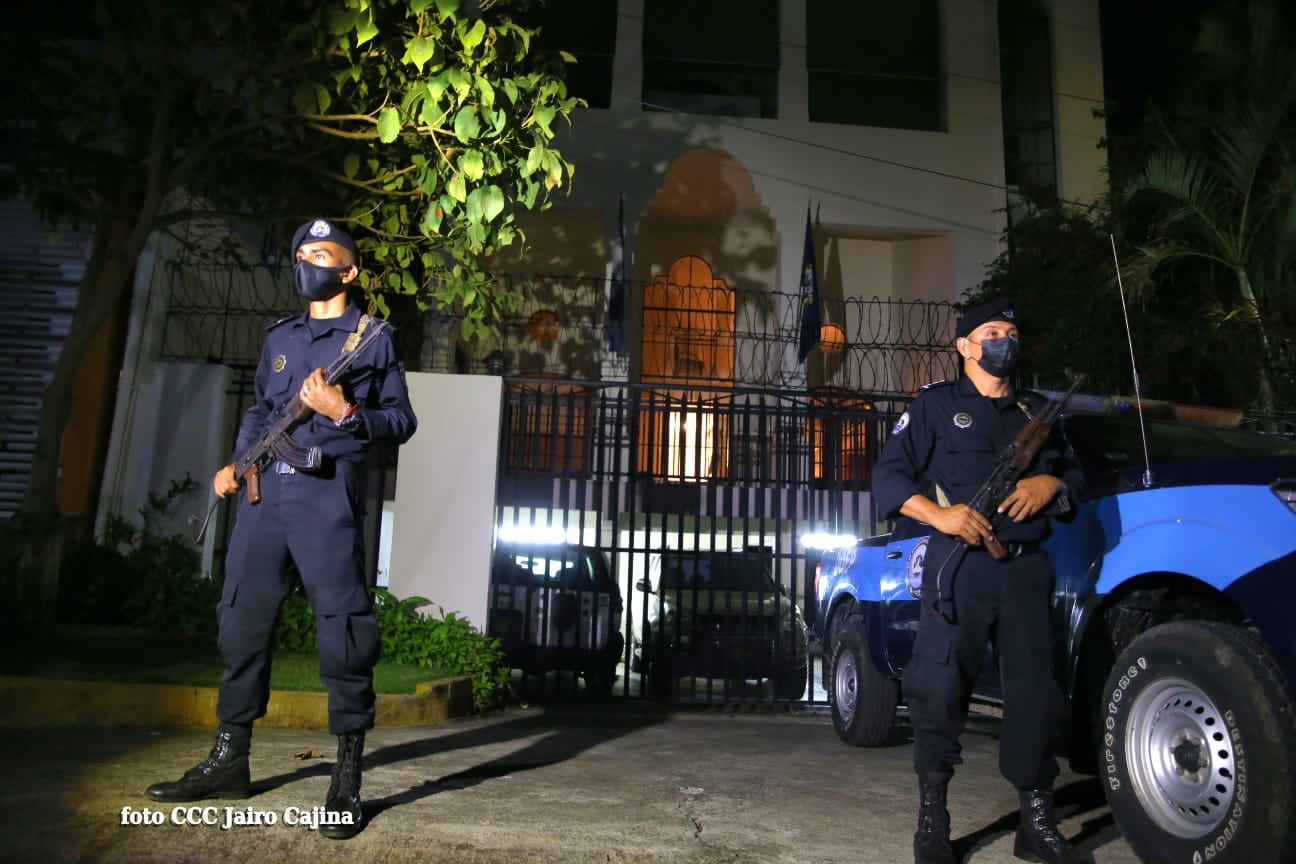The European Union (EU) lamented this Thursday the occupation by the Nicaraguan authorities of the office of the Organization of American States (OAS) in Managua, and warned that this step violates basic diplomatic norms.
“The EU deplores the recent takeover of the OAS premises by the Nicaraguan authorities,” said Nabila Massrali, spokesperson for the EU High Representative for Foreign Affairs, Josep Borrell, through her official Twitter profile.
Massrali added that “this violates basic diplomatic norms” under the 1961 Vienna Convention.
“Nicaragua must respect its international commitments, in particular the 1989 establishment agreement between Nicaragua and the OAS,” he insisted.
Related news: Ortega demands that the OAS vacate the expropriated building “immediately”
Nicaragua formalized this Wednesday the expropriation of the building where the OAS worked in Managua, which it rented, and where the “Museum of Infamy” will be created.
The Government of President Daniel Ortega ordered on Tuesday to declare that property, 296.1 square meters, located in an exclusive area of Managua, as a public utility, after the expulsion of that body from the country announced last Sunday by the Nicaraguan Foreign Minister, Dennis Moncada.
The Attorney General’s Office explained that the expropriated property, made up of two registry accounts, was not in the name of the OAS, which rented part of it, but “belonged undividedly” to two sisters.
Nicaragua announced last Sunday its decision to withdraw the credentials of its representatives to the OAS, as well as the closure of the offices of that organization in Managua.
Related news: Unab suggests to the OAS to convene a meeting of foreign ministers and apply the Democratic Charter to Nicaragua
That decision came three days after the Permanent Council of the OAS, with the absence of Nicaragua, approved suspending Russia, its ally, as a permanent observer, in punishment for the invasion of Ukraine and in a bid to further isolate Moscow. at the international level.
The OAS countries approved in the General Assembly held from November 10 to 12, a resolution condemning Nicaragua for the elections of November 7, in which Ortega prevailed and that they considered that “they were not free, fair or transparent and they have no democratic legitimacy.”
Ortega, 76, who returned to power in 2007, was re-elected for his fifth five-year term and fourth in a row, along with his wife Rosario Murillo as vice president, in elections that have not achieved the recognition of the majority of the community. international.

















